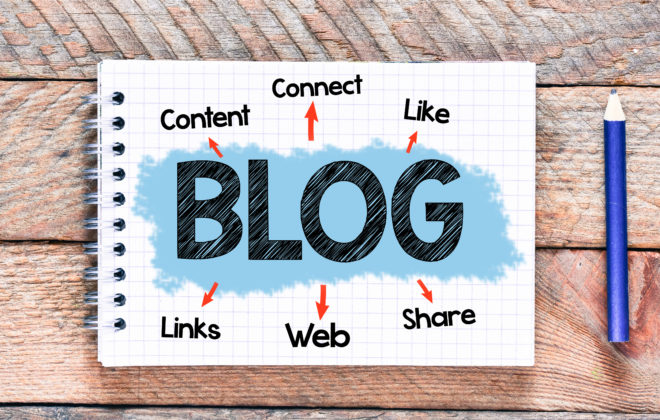Google Ad Words or Facebook Ads: Where Should You Invest Your Ad Dollars?
If you’re trying to decide between spending your advertising dollars on Facebook Ads or Google AdWords, you’re looking at your marketing wrong. The marriage of these two powerful online advertising giants is just what your business needs to achieve remarkable results from your digital marketing investment.
The difference between these two types of advertising is the difference between an outbound marketing strategy and an inbound marketing strategy. Here’s what I mean.
Understanding Facebook Ads
Facebook has moved its marketing model to pay-to-play. For years, businesses were able to amass large organic followings, but these days, unless you use Facebook Ads, a huge percentage of your own audience doesn’t even see your content.
Facebook Ads, also called “paid social,” is a means for Facebook users to find the businesses and products they’re looking for based on their interests. They’re actively looking for your products and services, or are at least interested in them.
Sound familiar? This is your basic inbound marketing strategy – make potential customers who are already interested in your products and services aware of your business.
Understanding Google AdWords
Google AdWords uses a pay-per-click advertising model, also known as “paid search.” It’s the largest, most effective paid search platform on the Internet. You’re probably familiar with how it works. You target keywords from user queries with the intent of your ad appearing when someone searches the keywords. Your AdWords ads are designed to find new customers searching for those keywords.
So to be clear, Facebook Ads help potential customers find you (inbound marketing), and Google AdWords help you find potential customers (outbound marketing). They’re doing the same thing – getting your business new customers – but using different approaches. Imagine what would happen if you used them together rather than guessing which one would work best.
Using Facebook Ads and Google AdWords Together for Peak Returns
Both Facebook Ads and Google AdWords have become essential components of a business’s digital marketing plan, but some are missing out by choosing one over the other. Seeing how they can work together will open up a whole new world. Here’s how to do it.
Targeting Brand Searches on Facebook to Increase Conversions through Google
The path to purchase isn’t linear. Shoppers often perform secondary searches when researching a product or service. They rely on Google to find a list of brands. After, shoppers may take a look at the company’s Facebook page to get more information and read customer reviews before making a purchase.
This can happen the other way around as well. After seeing an ad on Facebook, frequently users search Google rather than clicking on the ad. Often times, users will see the brand name in an ad on Facebook and go straight to Google to search for the brand there.
Knowing this, advertisers can target the brand name as a keyword search and find their audience on Facebook. During a search campaign include the brand name as a target keyword on current Facebook ads. Next, create a landing page connected to your AdWords campaign that allows you to collect contact information from those who search for your brand.
Boom. Now you found your Facebook audience, increased searches for your brand on Google, and turned them all into subscribers.
Targeting Facebook Headlines to Increase Google Inquiries
I discussed above how to use Facebook ads to increase inquiries for you brand on Google. Advertisers can take this a step further by using Facebook headlines to generate searches on Google.
Start by writing a catchy headline to promote your brand. For example, “Build a Custom-Made Website”, “Create a Professional Website Now”, or “Free Customized Templates”, or other search phrases relevant to your business. Those interested will see the Facebook ads and perform a search on Google using those exact headlines. Now you’ve got even more Facebook users and searches on Google. Way to go!
Re-targeting By Giving Users What They Want
The first two strategies retarget keyword searches on Google regardless of whether or not users clicked on the Facebook ads. Now you can take it a step further by adapting the landing page that users end up on when using a keyword search so that they see exactly what they were looking for.
Let’s take the Facebook ad headline of “Free Customized Templates”. You’ll want users that search for those keywords to see a unique landing page that relates to the search. In this case, the page would promote customized templates. The audience sees exactly what they wanted when they click and have a higher chance of conversion.
To accomplish this, you’ll need to segment customer audiences on Facebook. Go to the “Audience” tab then “Create a Custom Audience”. Next, create a custom audience that matches the landing page from the Google ad by changing the source to “AdWords”. Now Facebook will automatically retarget users who click on that landing page.
Billions of people use both Facebook and Google to shop for products and services. Many articles explore Facebook vs. Google, but advertisers will see greater returns when combining social with search. By retargeting on both, you can adapt messaging on Facebook and Google to see what works best in terms of click-through-rate (CTR) and conversions.
Get your digital marketing strategy dialed in today when you talk with a Web Graphics, Inc. Client Advisor at 1-800-932-7746.




